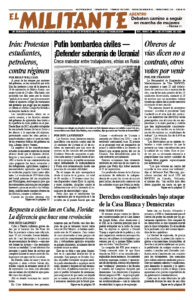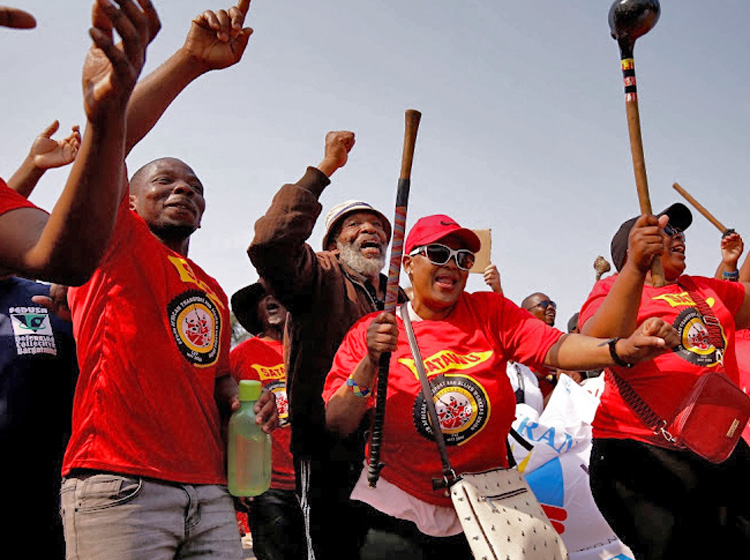More than 30,000 striking port and rail workers shut down freight transportation across South Africa, demanding pay and benefit raises to keep up with inflating prices. Members of the United National Transport Union began their strike Oct. 6. They were joined Oct. 10 by the South African Transport and Allied Workers Union.
The strike is against the government-owned seaport terminals and freight-rail company Transnet.
“The bosses are really arrogant,” Satawu communications director Amanda Tshemese told the Militant by phone from Johannesburg Oct. 7. “Inflation is at 7.6% but they decided to insult us by offering a 1.5% increase.” The unions are asking for a 12% to 13.5% increase. As the strike deadline approached, the company raised its offer to a mere 3%.
“They claim they don’t have enough money to pay a bigger increase,” Tshemese said. But South Africa’s Mail & Guardian said the state-owned company reported a net profit of 5 billion rand ($275 million) last year.
“We are also demanding that the company agree to no retrenchments [layoffs] and that it increase the medical and housing allowance,” United National Transport Union President Steven Leshabana said by phone.
Transnet took both unions to court claiming the strikes are illegal because they represent “essential” workers and charging the unions didn’t follow proper procedures. Under South African labor law, unions have to maneuver through all kinds of red tape before a strike is considered “protected.”
Company bosses have refused to agree to government-required picketing rules. “I think they are doing this to have a reason to say the strike is illegal,” said Leshabana. So far the bosses’ ploy has not worked. The Labour Court Oct. 10 dismissed Transnet’s request to rule the strike illegal.
“The workers on strike are among the lower-paid workers,” Satawu Vice President Anele Kiet told the Militant Oct. 10. “They can’t afford medical expenses. Most earn between 6,000 and 11,000 rand a month”
Despite the low wages, the Transnet workers don’t qualify for government housing assistance programs because they earn above the 3,500 rand per month threshold. Millions of people live in shacks made of corrugated iron in “informal” settlements and 33% of rural homes in South Africa don’t have indoor plumbing.
The United National Transport Union is unique in South Africa in that it’s the product of a fusion between all-white and all-black unions after the fall of apartheid. This “is one of our strengths,” Leshabana said. About 80% of the country’s population is comprised of black Africans and 8% white.
Satawu is part of the Cosatu union federation, which has historic ties to the ruling African National Congress and the South African Communist Party.
While the two unions compete to win members at Transnet, when it comes to negotiating and going on strike “we find common ground,” Leshabana said.
Capitalist businesses that rely on rail and ports are in a panic over the effectiveness of the strike. Kumba Iron Ore, a subsidiary of Anglo American, said the strike would disrupt the shipment of up to 120,000 tons of iron ore exports a day.


